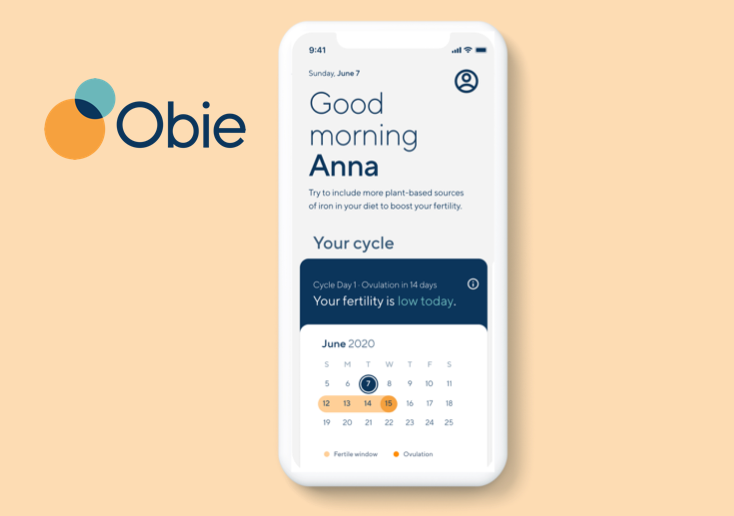
How long does sperm live?
Most sperm die within minutes after ejaculation inside the vagina or outside the woman's genital tract. However, once sperm enters the woman's genital tract, cervix, and uterus, some can survive up to 5 days, though most will not survive longer than 1-2 days. Studies have shown that most pregnancies are a result of intercourse that takes place within the 1-2 days before ovulation and the day of ovulation. Surprisingly, some pregnancies can occur after intercourse that took place up to 5 days before ovulation.
Obie is your reproductive health coach, helping you reach your goal with expert personalized guidance. Not an iOS user? Sign up to be the first to know about Obie for Android.
Improve your fertility and get pregnant faster
Most sperm die inside the female genital tract within 1-2 days after ejaculation.
How long can sperm survive in cervical fluid?
The longest that sperm can survive in a fertile (egg-white) cervical fluid is five days. Sperm exposed to room air on clothing, bed linens or toilet seats lose motility (the ability to swim) rapidly and die within less than one hour. Once the semen dries out, the sperm is dead and cannot fertilize the egg.
What determines how long sperm live?
Sperm can live from several minutes to several days depending on their environment:
- Sperm exposed to air, deposited on clothing, bed linens, or toilet seats, for example, dry out very quickly and die, usually within minutes after ejaculation.
- A sperm sample collected in a sterile container at body temperature may remain alive for several hours, but the sperms' fertilizing capability drops dramatically within 60 minutes after ejaculation.
- Sperm that moves from the vagina into the uterus can survive longer. Studies have shown that conception is possible up to five to six days after intercourse. It is quite possible for some sperm to survive that long in the uterus, usually in the cervical mucus or the fallopian tubes. However, that is not typical. Most sperm die in the uterus within 24-48 hours after ejaculation, and the more time has passed after ejaculation, the less likely is the fertilization of the egg.
- In excellent laboratory conditions and in a nutrient medium, they can remain alive for up to seven days.
- Sperm can be frozen at extremely low temperatures (but not in the refrigerator) and survive for years.
- Sperm can survive in the vagina for up to several hours.
- Most sperm die in the cervix within 24-48 hours, but some can survive for 4-5 days.
- Some sperm can also survive in the fallopian tubes for several days.
Read More:
How to Collect a Semen Sample
Can Masturbation Cause Low Sperm Count?
How Often to Have Sex When TTC
Male Fertility Testing: Sperm Analysis and Count
